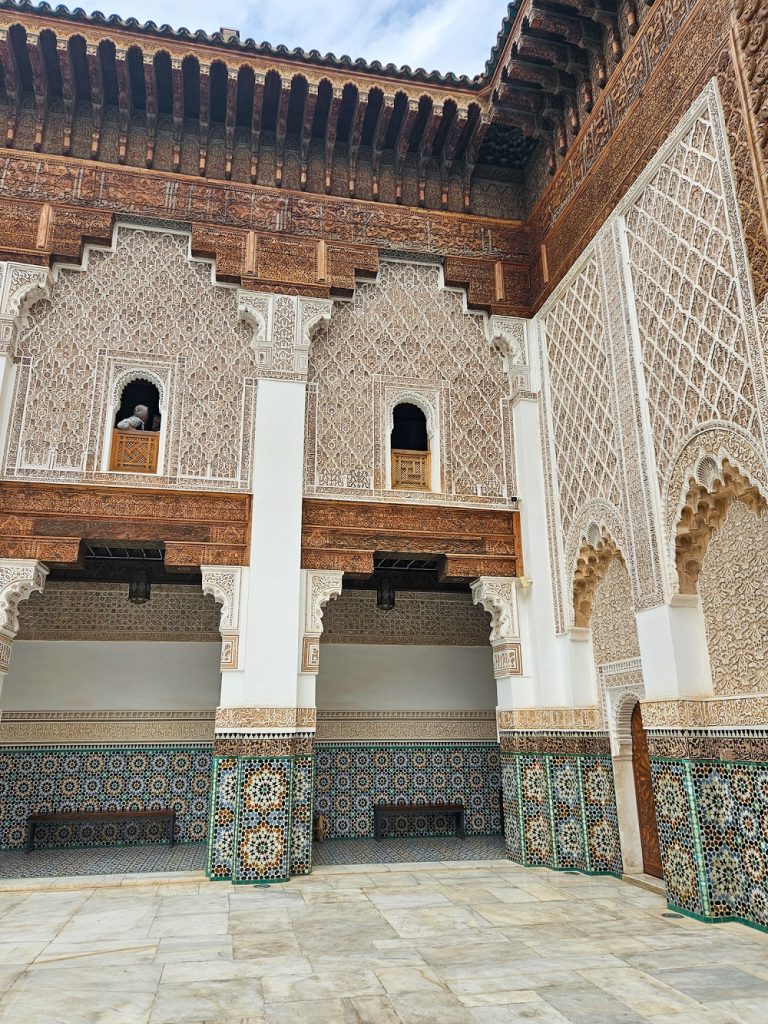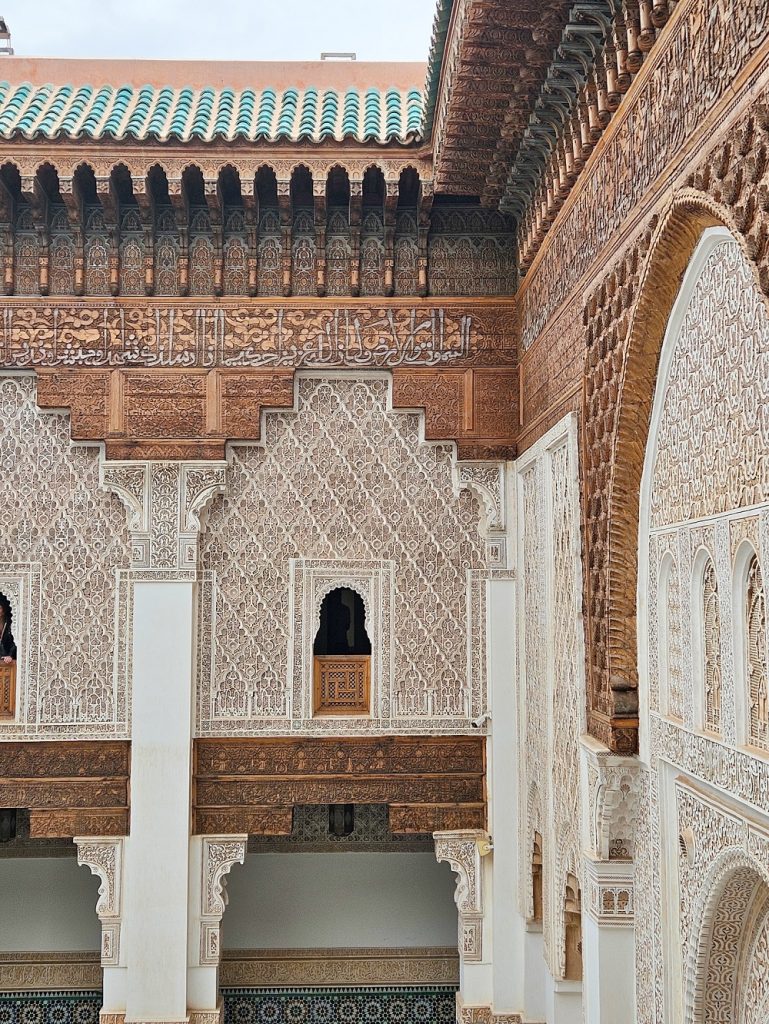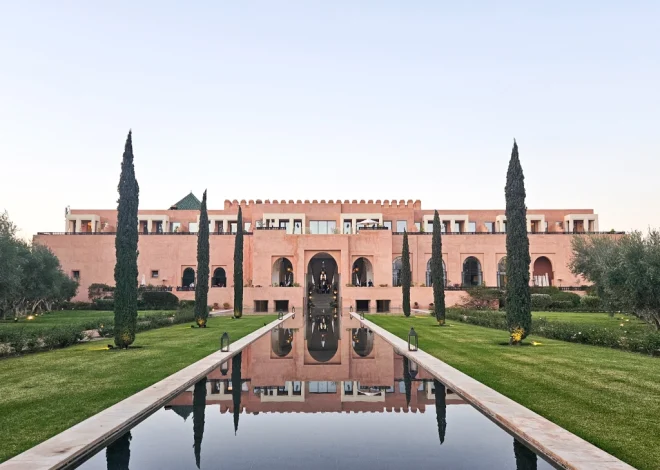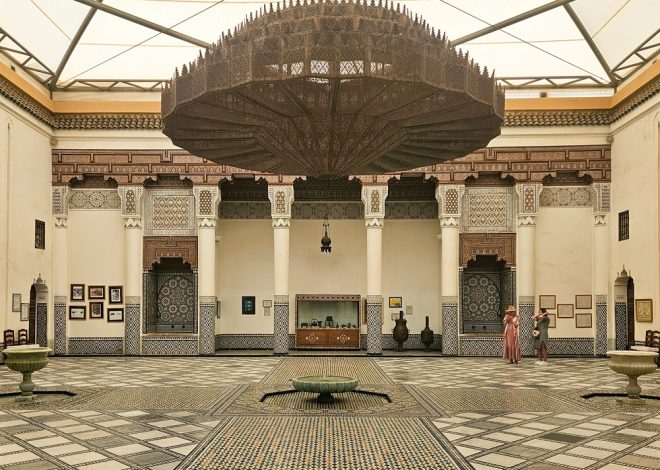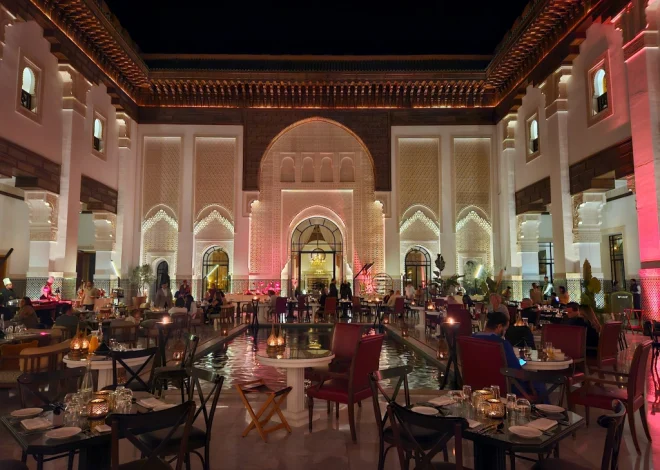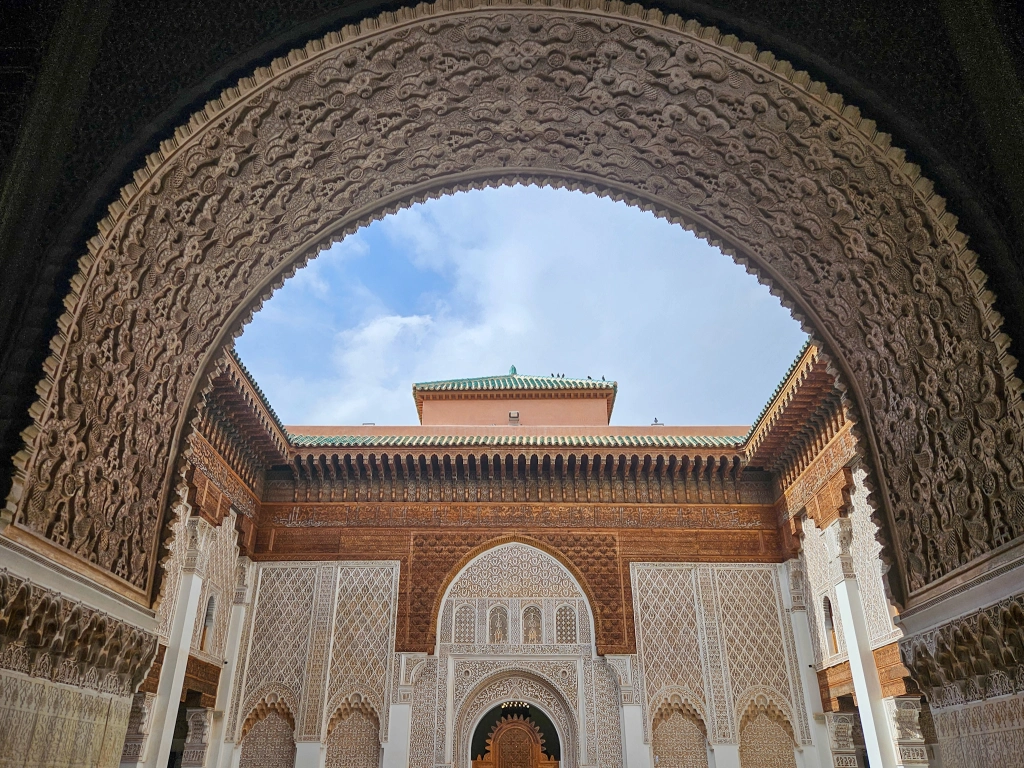
A Guide to visiting the Ben Youssef Madrasa, Marrakech
Without a doubt my favourite site on a recent trip to Marrakech was the incredible Ben Youssef Madrasa. I walked in and couldn’t stop saying wow – the architecture is just absolutely stunning, and after a recent renovation – in perfect condition. If you’re visiting Marrakech then make sure you don’t miss this wonderful place. Here’s everything you need to know about a visit!
History of Ben Youssef Madrasa
Madrasa means ‘school’ and the first school founded on this site was in the 1300s, though that building was later replaced by the one you see today.
The incredible place you find today was commissioned in 1564 as a place of learning by the Saadian sultan Abdallah al-Ghalib. At its height, it accommodated 900 students and was the largest Islamic college in the Maghreb. It contains over 130 rooms and students lived, studied and prayed in this building.
Ben Youssef was a vital place of learning across Morocco and Andalusia, spreading knowledge and understanding across the region. It wasn’t closed until the 1960s, and wasn’t opened as a tourist attraction until 1982. It was closed between 2018 – 2022 for restoration, and now it’s doors are open to its full glory again.
What to see at Ben Youssef Madrasa
The Madrasa is a typical Riad – square in shape with no doors or windows to the outside (bar the entrance), but opening in to a huge open courtyard with the rooms leading off of it. There are then lots of mini Riads off the main centre, around which the student rooms are situated, across 3 floors and totalling 1,680sqm.
The Main Courtyard
The Main Courtyard is the centre piece of the Madrasa, and you access it via a thin entrance way from the street. This process of entry, like in many Islamic buildings, is carefully designed to inspire revelation and astonishment in an unexpected opening of space into the main courtyard. it worked on me. WOW. The courtyard is itself is also centered around a large shallow reflective pool, adding to the space’s beauty. I also absolutely loved the symmetry everywhere.
The Prayer Room
Just off the courtyard to the south is the incredible Prayer Hall, equipped with a mihrab (which shows the direction of prayer towards Mecca). The decoration here is especially rich stucco, and utterly breathtaking again. Interestingly in Islamic decoration, calligraphy and shapes are the most common decorations and you won’t see any human/animal art as this is considered idolism. The most common shapes to see are pentagons (representing the 5 pillars of Islam) and octagons (representing the 8 gates to heaven).
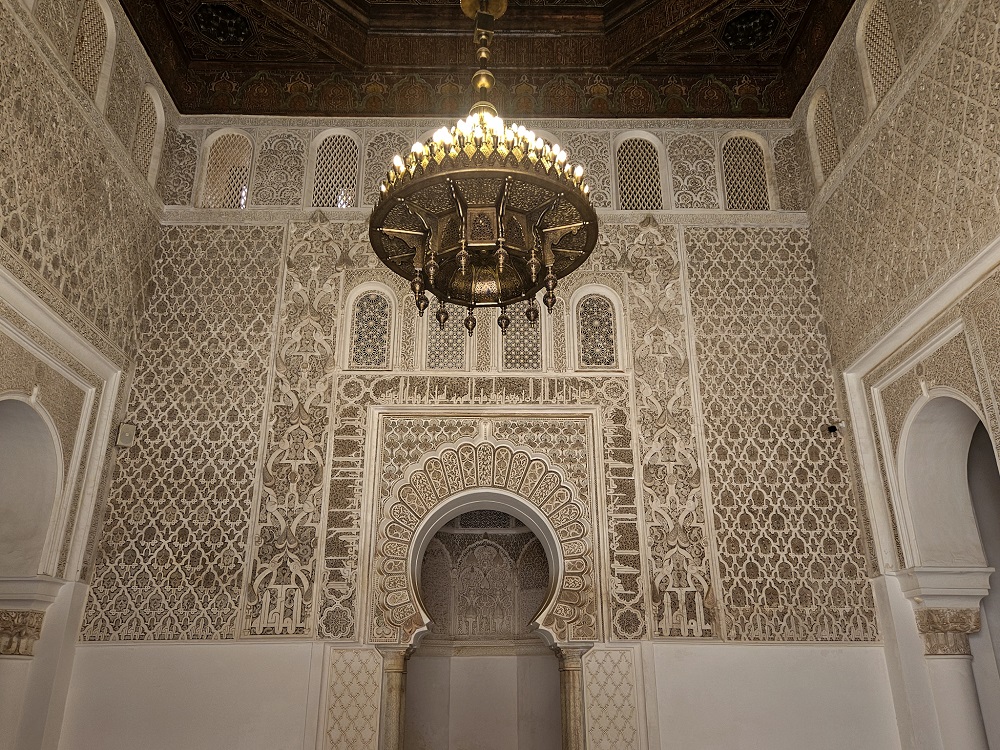
The Student Rooms
The layout of the Ben Youssef madrasa contains student dormitory cells clustered around the first and second levels of the central courtyard. There are cells on the ground floor, arranged round a mini Riad, while two stairways from the vestibule give access to similar corridors on the second level. The dorm rooms are additionally arranged around a series of six small courtyards which open on both levels from these corridors.
I was really surprised by how small some of the dormitories were – those on the ground floor were the smallest, and could sleep up to 6! The rooms on the upper floors were bigger, and normally for the best students in the Madrasa.
Ablutions Chamber
On the ground floor, the eastern corridor from the vestibule also gives access to an ablutions chamber in the northeastern corner of the building. The chamber has a square floor plan with four marble columns upholding four arches, and the middle of the chamber is occupied by a square water basin, surrounded by a number of toilets around the perimeter.
Important Information about Ben Youssef Madrasa
- Opening Times: 09:00 – 17:30 daily
- Cost: 50MAD (10 MAD for children under 12), cash only
- Visit Early: The crowds here get overwhelming. I visited first thing in the morning in March (off season) and the main courtyard was still pretty full at 09:10!
- There is no dress code to enter the Madrasa, however, I do recommend dressing conservatively to respect local traditions.
